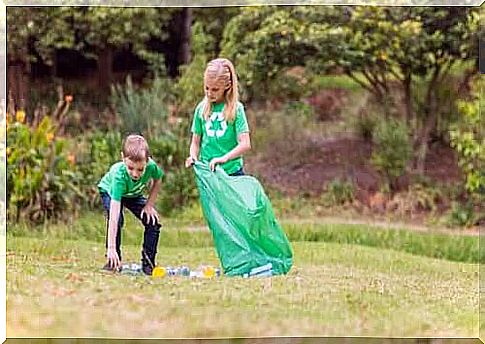The Importance Of Experiential Learning

Experience-based learning is a pedagogical strategy or methodology that aims to help children learn by doing and experiencing. This means that students learn the concepts and content of the curriculum through different situations.
Experience-based learning through experiences
Experience-based learning claims that meaningful learning takes place through actions. It aims for students to be active participants in their learning instead of just memorizing information and listening when the teacher speaks.
They must actively use all their senses, reason and think through their lesson material, which makes connections to real situations.
Experience-based learning works well with other active teaching methods because it aims to involve the student in actively studying and investigating a certain phenomenon or a certain situation.

It is similar to, for example, problem-based learning, a teaching method that takes into account the individual needs of those who learn. It also mixes content from a variety of topics.
The benefits of experiential learning
- It enables students to learn through experience and situations related to their environment. In this way, they can get an overall idea of what they are studying.
- It works well for different levels of education and ages, as long as the situations are developing and properly designed.
- It enables substantial, in-depth and long-term learning.
- It gives students a leading role by encouraging active participation, collaboration and commitment.
- In addition, it helps them to take the reins for their own education and accept that mistakes are part of learning new things.
- The teacher acts as a main actor in the students’ education, with the role of guide and mediator. The teacher must establish a positive relationship with his students to follow them and meet each of their special needs.
- It aims to help their natural development as different knowledge and therefore also different subjects come into play. They also get the opportunity to experience different social, cultural, psychological and personal situations.
Learning through own experiences
Experience-based learning should focus on educational activities designed around experiences. That is, you use real, practical and empirical situations to learn common school subjects.

For example, role-playing or group-dynamic techniques can be used to teach students about literature or social skills. One can prioritize direct contact with nature to teach them biology or physics. You can also use artistic or musical expressions to develop psychomotor skills and creativity.
In addition, experience-based learning not only benefits the development of a child’s intelligence and senses, but it also develops the child’s emotions.
When people experience something for themselves, they gain experience and experience emotions. This allows them to develop or connect to different aspects of their personality.
Briefly…
What makes experiential learning so valuable and beneficial is that it uses experience to facilitate learning. When you can reflect on the knowledge, skills and abilities you have needed to use in a specific situation, you get the chance to really experience what learning is all about.









